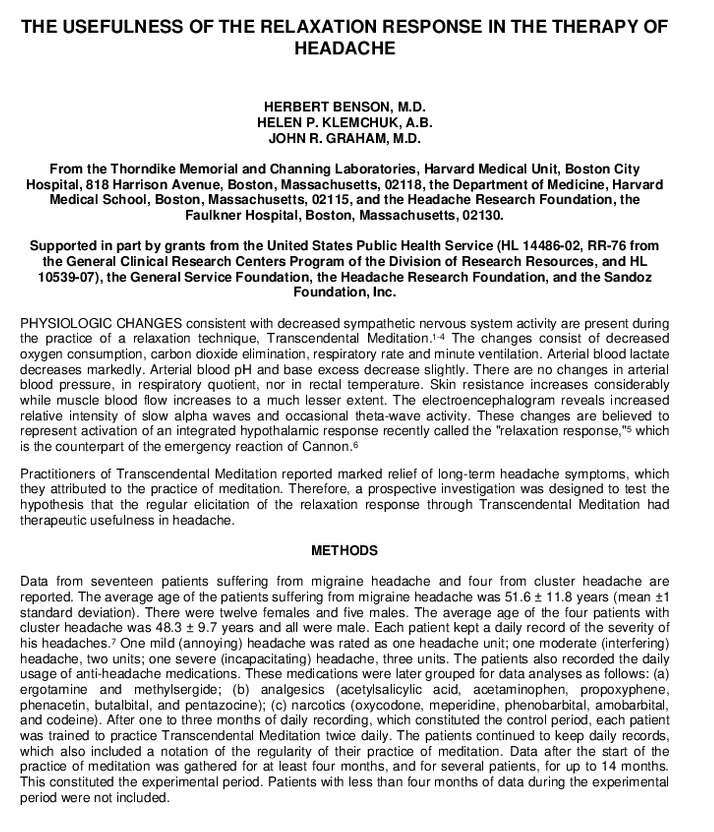PHYSIOLOGIC CHANGES consistent with the decreased sympathetic nervous system activity are present during the practice of a relaxation technique, Transcendental Meditation. The changes consist of decreased oxygen consumption, carbon dioxide elimination, respiratory rate and minute ventilation. Arterial blood lactate decreases markedly. Arterial blood pH and base excess decrease slightly. There are no changes in arterial blood pressure, in respiratory quotient, nor in rectal temperature. Skin resistance increases considerably while muscle blood flow increases to a much lesser extent. The electroencephalogram reveals increases relative intensity of slow alpha waves and occasional theta-wave activity. These changes are believe to represent activation of an integrated hypothalamic response recently called the “relaxation response” which is he counterpart of the emergency reaction of Cannon.
Practitioners of Transcendental Meditation reported marked relief of long-term headache symptoms, which they attributed to the practice of meditation, Therefore, a prospective investigation was designed to test the hypothesis that the regular elicitation of the relaxation response through Transcendental Meditation had therapeutic usefulness in headache.

